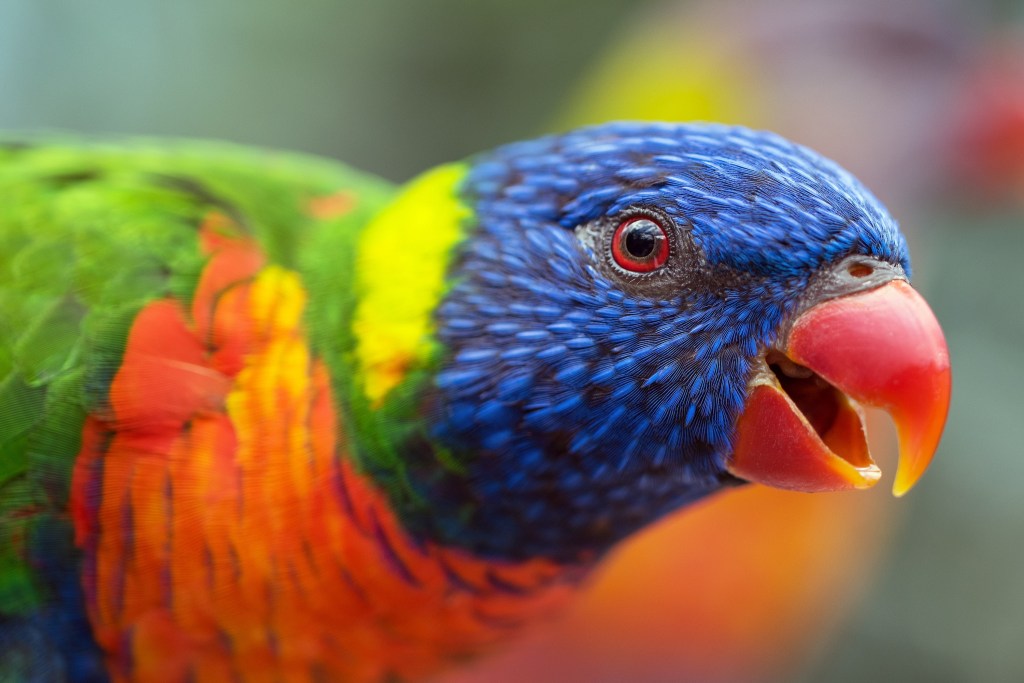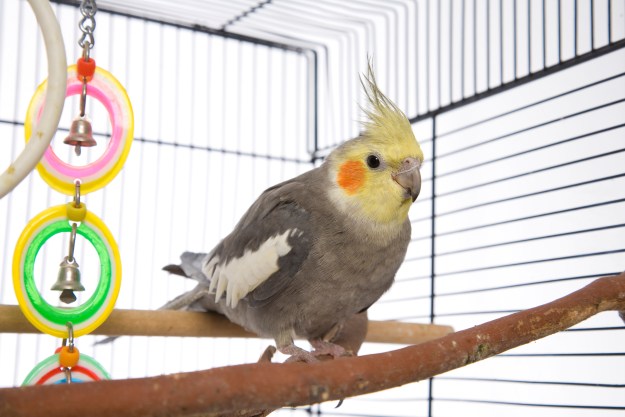We’ve all been woken up by a bird chirping at some time or another. It's such a common phenomenon that this trope makes its way into sitcoms and sayings. Unfortunately, this is only more likely to happen when you have a pet bird in the house that is free to sing day and night with abandon.
Luckily, most pet birds are diurnal and enjoy squawking along to our favorite tunes during the day, but get quiet at night when they sleep. Unless you’re housing a pet owl, you most likely will not need to worry about a nocturnal bird, but that doesn’t mean your avian won’t chirp half the night and prevent you from sleeping. Don’t worry — there are a few steps you can take to bring peace and quiet back to your house while also ensuring your bird’s happiness.

Why do birds chirp at night?
Some of the racket you hear from these animals is because of us. Birds who are outside may stay up late because of city noise and light pollution. In the house, you have similar issues.
The television or other nighttime noises could be what’s keeping your bird up, as well as household lighting. Avians also chirp if they feel stressed or lonely, which means they might just need some comfort.

What can you do to if your bird won't stop chirping at night?
Try a few of these tricks to see if something seems to settle them. Once you’ve got a good routine down, you’ll be getting plenty of sleep, and so will your flyer.
Step 1: Find the source.
You may need to figure out what’s causing your pet to tweet late at night because it could be any of the things we mentioned. Sometimes eliminating the source will be easier than working around the issue.
Step 2: Cover the cage.
Get this one out of the way first since it’s the easiest to implement. While the goal is to block out light and muffle sound, you don’t want to completely close off your pet as they still need to breathe properly.
Step 3: Talk to your bird.
We already mentioned that your animal might feel lonely or stressed late at night. You can give them a quick good night to try to remind them that you’re still there and will be ready to play in the morning.
Step 4: Train your pet to stop.
Invest in some training time to get them to cease their nightly chorus. Practice calming or quieting your bird and giving them a treat when they comply. Better yet, try to persuade them to stay silent for a few seconds and then provide the reward.
Step 5: Find a good room.
It’s nice to have your feathered friend around while you hang out during the day, but the location of the cage may not be suitable for bedtime. Do a walk through your pet's area a few times to listen for noises and look for light sources that you may not know about. Find a spot that’s far away from those distractions and from you.
Step 6: Keep your noise down.
Your nightly routine makes more noise than you think. The TV playing, your toothbrush buzzing, your hairdryer blowing, your shower running — all these things will keep a bird wide awake wondering what you will do next.
Giving your bird their own room will certainly help, but you’ll still want to be mindful of your activities. Close doors as much as possible and shift particularly loud activities (like laundry) to earlier in the day while they are still awake, if possible.
Step 7: Get a white noise machine.
When all else fails, get yourself a white noise machine or some earplugs to block them out. Just ensure your bird can’t hear it, too, as that could make the whole problem worse. Don’t feel guilty about it — your pet is mostly talking to themselves anyway.
Like kids, birds thrive on routine. If you’re teaching them commands and words, tell them good night before you leave the room and hope they get the message. Sometimes, one bird of the flock is the bad influence, and you have to find the culprit. Try setting up a phone or pet cam for a night to see who’s making the noise and maybe even what’s causing it. While we don’t recommend splitting up a pair, you might get some valuable information here that will help guide your plan. Or embrace their chatty ways and let their songs help you drift off to sleep.
Editors' Recommendations
- How to clear cloudy aquarium water in a few easy steps and make your fish happy
- Found an injured bird? Here’s how to help a bird with a broken wing
- Best reptile pets: These are the 5 most affectionate reptiles you can welcome into your home
- How to set up your guinea pig cage – here’s everything you need
- 3 reasons not to give pet rabbits, baby chicks, or ducks this Easter




